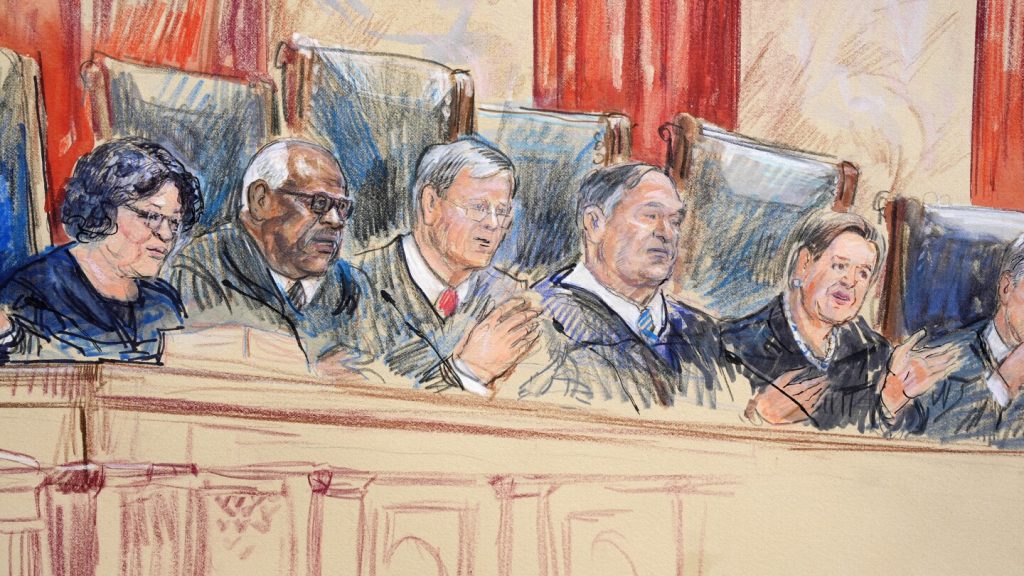The Supreme Court heard over 2 1/2 hours of arguments on whether former President Donald Trump is immune from prosecution in a case alleging he plotted to overturn the 2020 election. The justices appeared likely to reject Trump’s immunity claim, but a lengthy trial delay could still benefit him beyond November’s election. Justices expressed concern about setting a precedent that could impact future cases involving political rivals. The historic stakes of the case and the potential implications on the presidency were highlighted throughout the proceedings.
While the presidential race was not directly mentioned, the 2024 election loomed over the arguments. The possibility of delaying the trial until after the election was acknowledged, raising questions about the court’s role in deciding whether Trump can stand trial before the vote. The court grappled with the balance between not appearing as a political actor while also acknowledging the potential impact of a delayed ruling on the election. The significance of the case on the future of the presidency and the country was a key point of discussion among the justices.
The court seemed skeptical of Trump’s bid to dismiss the case, but there were suggestions that more legal wrangling might be necessary before the trial could proceed. Several justices raised concerns about differentiating between official and private acts in the indictment and whether immunity should apply. The possibility of sending the case back for further analysis could significantly delay the trial, potentially until after the election. Liberal justices appeared inclined to move the trial forward, arguing that the President is not above the law, while conservative justices showed a more receptive stance towards Trump’s claims.
The justices engaged in hypothetical scenarios to test the boundaries of the arguments presented. Questions about potential prosecutions for lying to induce war, accepting bribes, or authorizing drone strikes raised the complexity of the case. Justices considered the implications of not granting immunity to former presidents and the impact it could have on future prosecutions. The nuanced questioning from the justices, particularly Chief Justice John Roberts and Justice Amy Coney Barrett, indicated a cautious approach in weighing the legal principles at play. The implications of the court’s ruling beyond the immediate case were a central focus of the proceedings.


